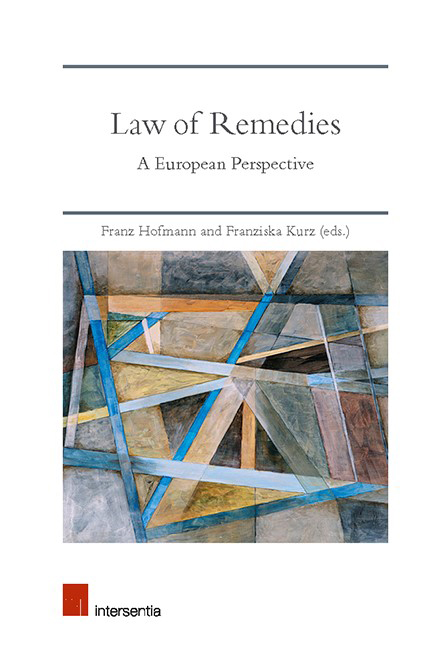Book contents
- Frontmatter
- Contents
- List of Cases
- List of Authors
- PART I THE ISSUE OF REMEDIES
- PART II MECHANISMS OF ENFORCEMENT
- Private Enforcement versus Public Enforcement
- Criminal Enforcement
- PART III FUNCTIONS OF REMEDIES
- PART IV UNDERLYING PRINCIPLES
- PART V REMEDIES IN CONTRACT LAW AND INTELLECTUAL PROPERTY
- Index
- About the Editors
Criminal Enforcement
from PART II - MECHANISMS OF ENFORCEMENT
Published online by Cambridge University Press: 09 November 2019
- Frontmatter
- Contents
- List of Cases
- List of Authors
- PART I THE ISSUE OF REMEDIES
- PART II MECHANISMS OF ENFORCEMENT
- Private Enforcement versus Public Enforcement
- Criminal Enforcement
- PART III FUNCTIONS OF REMEDIES
- PART IV UNDERLYING PRINCIPLES
- PART V REMEDIES IN CONTRACT LAW AND INTELLECTUAL PROPERTY
- Index
- About the Editors
Summary
INTRODUCTION
This chapter presents thoughts on criminal enforcement. Since there is only very limited material at the European level on this subject, the chapter will concentrate on the national perspective of criminal law, focusing on the question how far criminal provisions are enforced in the German legal system and what role criminal procedural law and private persons play in this context. Wherever possible and adequate, the difference between civil and public enforcement will be emphasised. There are different questions that arise from the topic. There are three main questions that are raised by criminal enforcement:
1. The first question is: How is substantive criminal law enforced?
2. The second question is directly linked: How are criminal sanctions enforced?
3. And last, but not least, the third question is: How can private persons influence the enforcement of criminal sanctions? This question especially concerns the relation of private versus public enforcement.
The government has an arsenal of enforcement tools to compel compliance with criminal law. The regulations vary from penalisation to dispensing with prosecution. Criminal investigations and criminal prosecutions do not have to lead inescapably to a conviction of the perpetrator. There are factual and legal reasons for non-enforcement.
FACTUAL REASONS FOR NON-ENFORCEMENT
Factual reasons for non-enforcement are most of all lack of evidence or lack of the off ender (unknown or escaped). Obviously, a criminal sanction cannot be enforced if the police or public prosecutor cannot get hold of the alleged perpetrator, or if the evidence is not strong enough to prove his/her guilt. About 67 per cent of all registered crimes cannot be prosecuted because there are not sufficient grounds for suspicion or the guilt is negligible. Even if a crime is committed, i.e. a person being robbed, a house set on fire, a person being drowning or murdered, the alleged person must be set free for lack of proof. A criminal sanction cannot be enforced.
LEGAL REASONS FOR NON-ENFORCEMENT
Besides the factual reasons, there are legal reasons for non-enforcement. In these cases, there is clear evidence that the alleged person has committed a crime, yet, there must be an acquittal. The discharge may be based on substantive or procedural criminal law.
- Type
- Chapter
- Information
- Law of RemediesA European Perspective, pp. 133 - 150Publisher: IntersentiaPrint publication year: 2019



